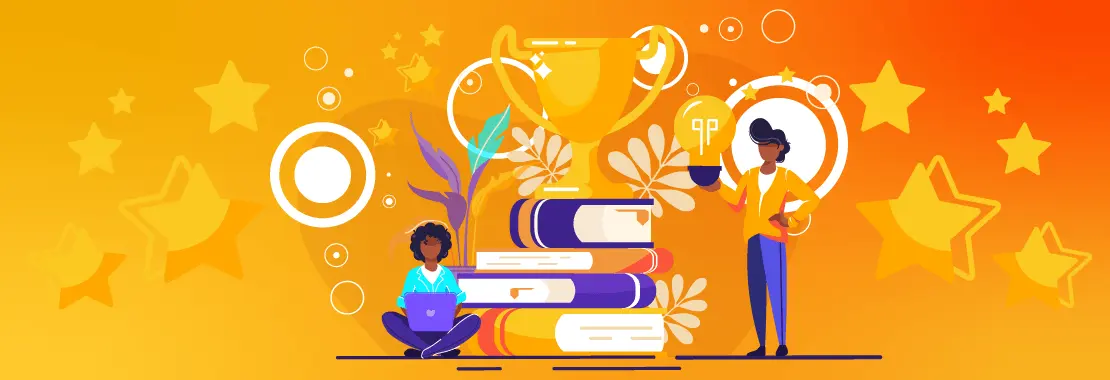More than just grades: Explore the essential responsibilities of a student, from academic excellence to personal growth and active citizenship. Discover tips for time management, critical thinking, and building a well-rounded future.
Defining a Student’s Responsibilities: Beyond Academics
A student’s responsibilities go beyond academic achievements and encompass various aspects crucial for personal growth and development. Here’s a breakdown:
1. Academic Commitment:
Attending classes regularly, actively taking part in learning activities, completing assignments on time, and striving for academic excellence are primary responsibilities.
2. Self-Discipline and Time Management:
Developing effective study habits, managing time efficiently, and balancing academic workload with personal commitments are essential skills for success.
3. Active Learning Engagement:
Actively engaging in learning, asking questions, seeking clarification, and collaborating with peers to deepen understanding fosters a proactive approach to education.
4. Personal Development:
Cultivating personal growth involves exploring interests, developing hobbies, and nurturing talents outside of academics.
This can include pursuing sports, arts, volunteering, or other extracurricular activities that contribute to a well-rounded personality.
5. Responsibility for Actions:
Taking responsibility for one’s actions, decisions, and behavior both in and out of the classroom builds integrity and maturity. Respecting rules, peers, teachers, and the learning environment is integral.
6. Emotional and Mental Well-being:
Prioritizing mental health by managing stress, seeking support when needed, and practicing self-care is crucial for overall well-being.
7. Social Awareness and Engagement:
Developing social skills, empathy, and understanding diverse perspectives through interactions within the school community and beyond helps in becoming a responsible citizen.
8. Future Readiness:
Planning for the future by exploring career options, networking, and acquiring skills beyond academics, such as communication, problem-solving, and adaptability, prepares students for life beyond school.
9. Contributing to the Community:
Engaging in community service, volunteering, or engaging in initiatives that benefit society fosters a sense of civic responsibility and empathy.
A holistic approach to education involves embracing these responsibilities, balancing academic pursuits with personal growth, and preparing for a fulfilling and well-rounded life beyond the classroom.
10. Responsible for Classroom Management
One key responsibility of a student is to manage the class as per the tutor’s instruction, if they direct you to manage the class. Classroom management is beneficial for you in the future if you want to be a good leader.
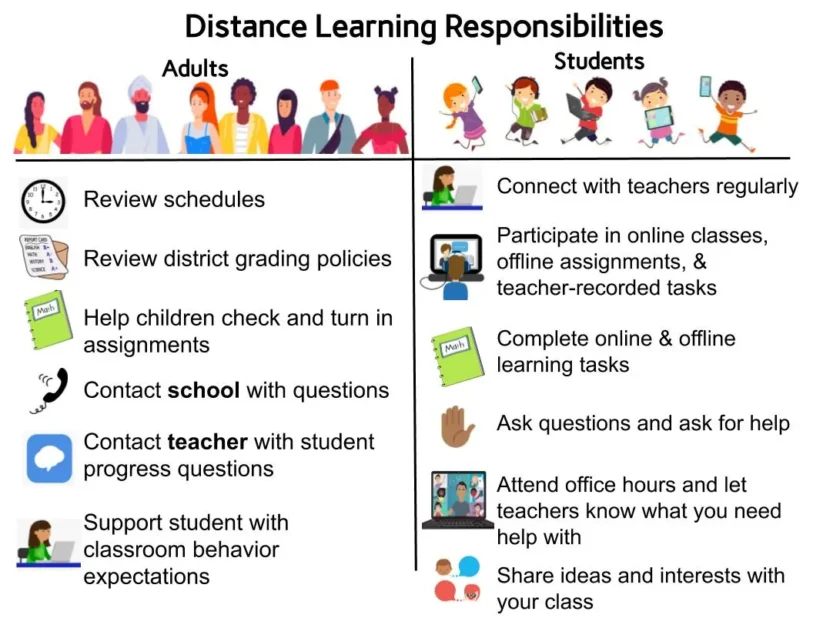
Importance of Fulfilling these Responsibilities
Fulfilling responsibilities beyond academics holds significant importance in shaping a well-rounded individual and fostering success in various facets of life. Here’s why these responsibilities matter:
1. Holistic Development
Beyond academic achievements, these responsibilities contribute to holistic development, nurturing skills, and traits essential for personal and professional success.
2. Life Skills Acquisition
Fulfilling these responsibilities hones crucial life skills such as time management, communication, problem-solving, and resilience, which are invaluable in real-life situations.
3. Well-rounded Personality
Balancing academics with personal interests and commitments helps in developing a well-rounded personality, fostering creativity, and providing a sense of fulfillment.
4. Preparation for the Future
Responsibilities beyond academics prepare students for the complexities of adult life, equipping them with the skills, attitudes, and experiences necessary for career success and personal growth.
5. Social and Emotional Intelligence
Engaging in extracurricular activities and community involvement enhances social skills, empathy, and emotional intelligence, vital for building strong relationships and effective communication.
6. Adaptability and Versatility
Juggling multiple responsibilities teaches adaptability and versatility, enabling individuals to navigate diverse situations and challenges effectively.
7. Contributing to Society
Engaging in community service and social initiatives fosters a sense of civic responsibility, empathy, and a deeper understanding of social issues, encouraging active citizenship.
8. Mental Well-being
Balancing academics with personal interests and activities promotes mental well-being by reducing stress, enhancing creativity, and providing avenues for relaxation and enjoyment.
Fulfilling responsibilities beyond academics isn’t just about meeting obligations; it’s about fostering personal growth, acquiring essential life skills, and preparing for a fulfilling and meaningful life beyond the classroom.
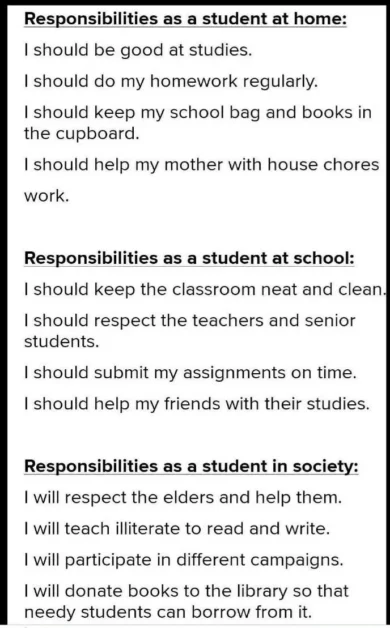
Academic Excellence: The Cornerstone of Growth
A student’s pursuit of academic excellence extends far beyond mere attendance and completion. It’s a journey of active learning, critical exploration, intellectual curiosity, and ethical conduct. Here are the key pillars that define this journey:
A. Diligent Engagement:
- Active participation: Not just attending classes, but actively listening, asking questions, and contributing meaningfully to discussions.
- Consistent effort: Sticking to study schedules, completing assignments on time, and seeking help when needed.
- Effective study techniques: Utilizing methods like flashcards, mind maps, and practice tests to optimize learning and retention.
B. Critical Thinking Powerhouse:
- Analyzing information: Going beyond surface-level understanding, questioning assumptions, and examining diverse perspectives.
- Forming informed opinions: Critically evaluating evidence, developing reasoned arguments, and avoiding biases.
- Problem-solving prowess: Applying knowledge to real-world challenges, thinking creatively, and finding innovative solutions.
C. Beyond the Curriculum’s Boundaries:
- Intellectual curiosity: Fueling a lifelong love of learning by exploring diverse topics, reading widely, and seeking new challenges.
- Independent exploration: Engaging in extracurricular activities, attending lectures and workshops, and connecting with mentors in fields of interest.
- Real-world application: Bridging the gap between theory and practice, seeking opportunities to apply knowledge to solve real-world problems.
D. Integrity: The Bedrock of Success:
- Plagiarism-free zone: Upholding academic honesty by properly citing sources and respecting intellectual property.
- Ethical collaboration: Working effectively in groups while giving due credit and avoiding academic misconduct.
- Advocating for fairness: Promoting ethical practices within the academic community and reporting cases of dishonesty.
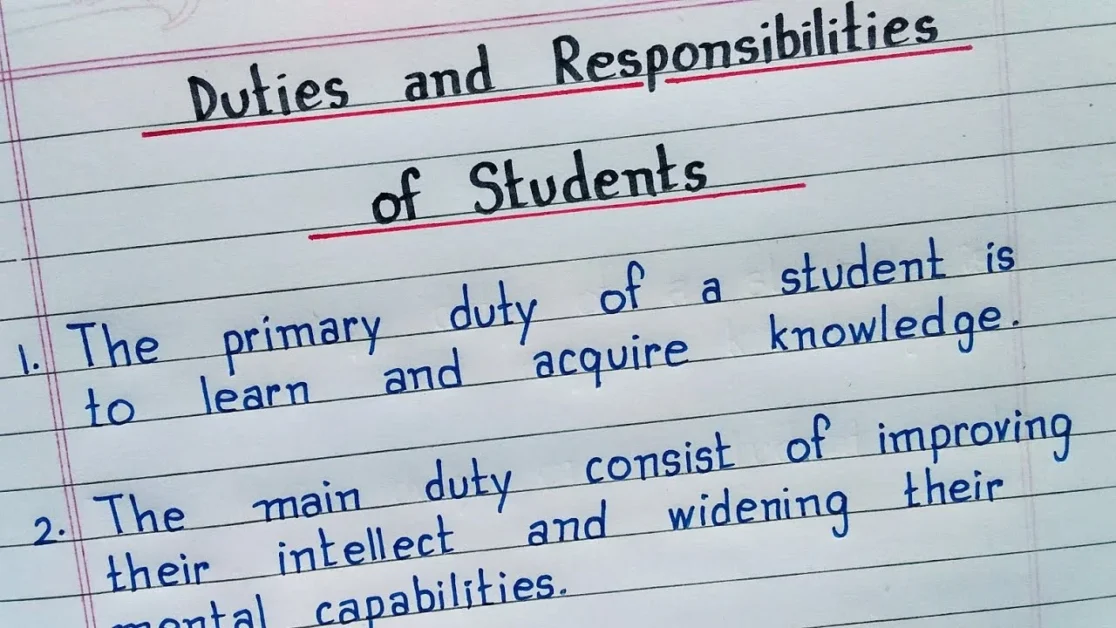
Personal Growth: Blossoming Beyond Grades
Academic success is only one piece of the puzzle. A well-rounded student thrives on personal growth, nurturing skills, and qualities that extend far beyond the classroom. Here are the key areas where students can blossom:
A. Time Management Maestro:
- Prioritizing tasks: Juggling academic work, extracurriculars, and personal commitments requires strategic planning and setting clear priorities.
- Setting SMART goals: Specific, Measurable, Achievable, Relevant, and Time-bound goals provide a roadmap for growth and motivation.
- Meeting deadlines with grace: Mastering time management techniques like scheduling, chunking tasks, and avoiding procrastination ensures the timely completion of work.
B. Self-Discipline Samurai:
- Overcoming challenges: Embracing obstacles as opportunities for learning, developing resilience, and bouncing back from setbacks.
- Perseverance powerhouse: Maintaining focus and motivation even when faced with difficulties, cultivating grit and a “never give up” attitude.
- Internal motivator: Finding intrinsic motivation for self-improvement, setting personal goals, and celebrating small victories along the way.
C. Communication Champion:
- Clear expression: Articulating thoughts and ideas effectively, using concise language, and presenting information confidently.
- Active listening ninja: Paying close attention to others, demonstrating empathy, and asking insightful questions to deepen understanding.
- Teamwork virtuoso: Collaborating effectively with others, respecting diverse perspectives, and contributing constructively to group projects.
D. Emotional Intelligence Sage:
- Self-awareness: Recognizing emotions, understanding triggers, and practicing self-reflection for personal growth.
- Empathy ninja: Building healthy relationships, showing compassion, and understanding the perspectives of others.
- Stress management master: Implementing healthy coping mechanisms like exercise, mindfulness practices, and seeking help when needed.
E. Cultivating Healthy Habits:
- Physical and mental well-being: Prioritizing physical activity, healthy eating, and quality sleep for optimal physical and mental health.
- Balanced lifestyle: Juggling academic pursuits, personal interests, and social connections to maintain a healthy balance and prevent burnout.
By nurturing these aspects of personal growth, students can become confident, well-rounded individuals equipped to handle the challenges and opportunities that life throws their way.
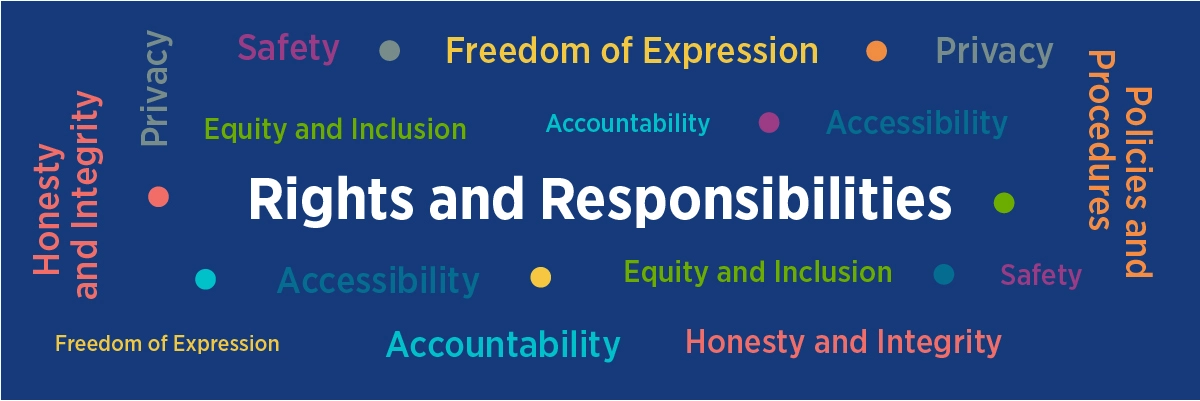
Active Citizenship: Building a Better World
A student’s responsibility extends beyond the classroom walls. Active citizenship is about contributing positively to the community and advocating for a better world. Here are some key areas where students can make a difference:
A. School Community Champion:
- Taking part in clubs: Engaging in activities that spark their interests, develop leadership skills, and contribute to the school community.
- Volunteer extraordinaire: Lending a helping hand through volunteering initiatives, mentoring younger students, or organizing events.
- Upholding school values: Embodying the school’s core values, respecting diversity, and promoting a positive and inclusive environment.
B. Inclusivity Advocate:
- Celebrating diversity: Recognizing and appreciating different cultures, backgrounds, and perspectives, promoting respect and understanding.
- Fostering belonging: Creating a welcoming and inclusive environment for everyone, actively combating discrimination and prejudice.
- Standing up for what’s right: Speaking out against injustice and advocating for the rights of others respectfully and constructively.
C. Critical Citizen:
- Engaging with social issues: Staying informed about current events, forming informed opinions based on evidence, and participating in respectful dialogue.
- Advocating for change: Taking action to make a difference in their communities, whether through petitions, protests, or creative initiatives.
- Responsible digital citizen: Using technology ethically and safely, promoting responsible online behavior, and combating misinformation.
By taking an active role in their communities and advocating for positive change, students can become responsible citizens who contribute to a more just and equitable world.
Responsibilities of a Student In School
- Learning Explorer: Embrace curiosity, ask questions, and delve deeper than just grades.
- Knowledge Architect: Attend classes, complete assignments, and actively build your understanding.
- Teamwork Mastermind: Collaborate effectively, listen actively, and value diverse perspectives. Teamwork will be beneficial for him or her.
- Skillful Navigator: Manage your time effectively, prioritize tasks, and meet deadlines.
- Integrity Champion: Uphold academic honesty, respect intellectual property, and strive for ethical conduct.
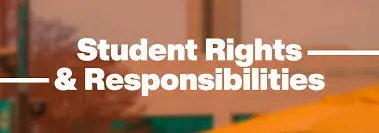
Responsibilities of a Student In Society
- Respectful Ambassador: Treat everyone with kindness and consideration, fostering a positive learning environment.
- Diversity Defender: Embrace different cultures and backgrounds, and promote understanding and inclusion.
- Helping Hand: Volunteer your time and talents to support your school community.
- Voice for Change: Advocate for positive changes within the school, contributing to a better learning experience for all.
- Tech-Savvy Citizen: Use technology responsibly and ethically, avoiding online harm and promoting digital citizenship.
Responsibilities of a Student In the Classroom
- Prepared Pathfinder: Come to class ready to learn, with the necessary materials and a curious mind.
- Active Listener: Pay attention attentively, ask insightful questions, and engage in meaningful discussions.
- Idea Sharer: Express your thoughts and ideas clearly and respectfully, enriching the learning environment.
- Error Conqueror: View mistakes as stepping stones, learn from them, and seek help when needed.
- Supportive Team Player: Encourage your classmates, celebrate their successes, and contribute to a positive classroom spirit.
Other Responsibilities of Students
A student’s responsibilities bloom beyond simply filling notebooks and acing tests. They’re about cultivating a curious mind, building a respectful community, and shaping a well-rounded self.
It’s about diligently pursuing knowledge, honing critical thinking skills, and embracing diverse perspectives within the classroom walls.
It’s about contributing to the school community through volunteering, collaboration, and upholding values. It’s about stepping into the world as a responsible citizen, engaging with social issues, and advocating for positive change.
A student’s responsibility is to grow, learn, and contribute, leaving not just a mark on their grades, but a positive footprint on the world around them. Some other responsibilities of a student as follows:
- Complete tasks
- Obey the teachers
- Come to class prepared
- Discuss responsibility with students
- Participating in classroom activities
- End class on time
- Keep the school neat
- Respecting themselves and others
- Learn to take self-accountability
- Punctual
FAQs
A student’s responsibilities include academic dedication through attendance, assignments, and striving for excellence.
Developing self-discipline, engaging actively in learning, and adhering to rules and respectful behavior are crucial.
Personal development through extracurricular activities, future readiness by exploring careers and life skills, and contributing to the community complete a well-rounded set of duties.
These responsibilities collectively shape students for academic success and prepare them as responsible individuals for life beyond the classroom.
As an individual, your responsibilities extend beyond personal interests.
Firstly, treating others with respect, empathy, and kindness forms the foundation of meaningful interactions. Taking accountability for your actions, decisions, and their consequences is essential for personal growth and integrity.
Contributing positively to your community through acts of service, support, or advocacy reflects a sense of civic duty. Embracing ethical behavior and upholding moral values in various aspects of life shapes your character and impacts those around you.
1. Attend classes regularly and punctually.
2. Actively participate in class discussions and activities
3. Complete assignments and submit them on time.
4. Study consistently and prepare for exams.
5. Respect teachers, classmates, and school rules.
6. Maintain a neat and organized study space.
7. Engage in extracurricular activities for holistic development.
8. Seek help or clarification when needed.
9. Contribute positively to the learning environment.
10. Strive for continuous improvement and academic excellence.
Final Words
The responsibilities of a student are not simply a list of tasks to tick off, but a compass guiding a journey of lifelong learning and growth.
It’s about embracing intellectual curiosity, honing critical thinking skills, and fostering a spirit of collaboration and active citizenship.
Beyond the classroom walls, these responsibilities extend to contributing positively to the community, advocating for positive change, and using technology responsibly.
Each student’s journey is unique, and the specific responsibilities they embrace will evolve.
But the essence of student responsibility remains constant: to cultivate a love of learning, become a responsible and ethical citizen, and leave a positive footprint on the world.
Embrace the journey, young scholar, and write your own story of student responsibility. The world awaits your unique contribution!
Read Also: 13 Easy Steps To Improve Your Critical Thinking Skills

